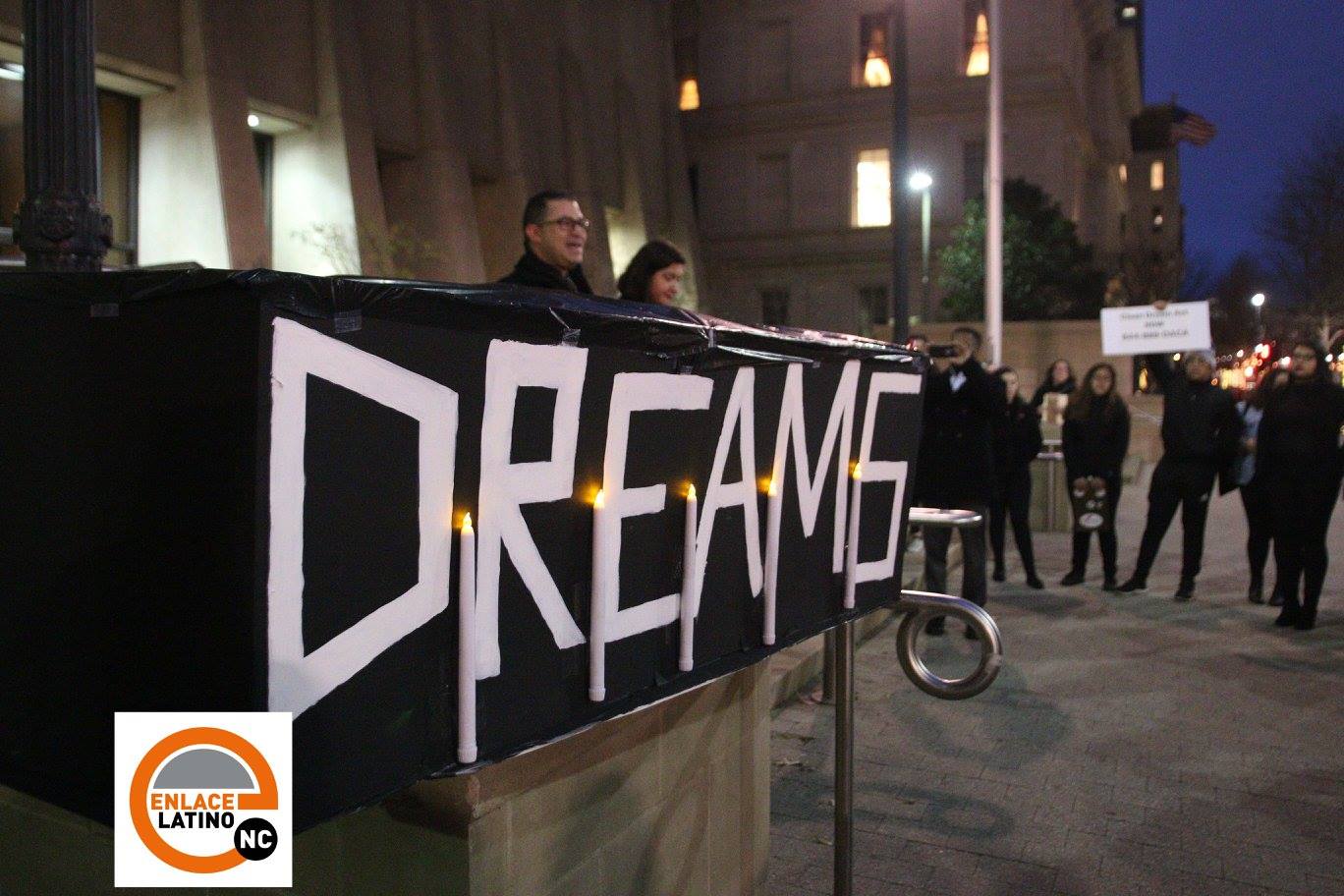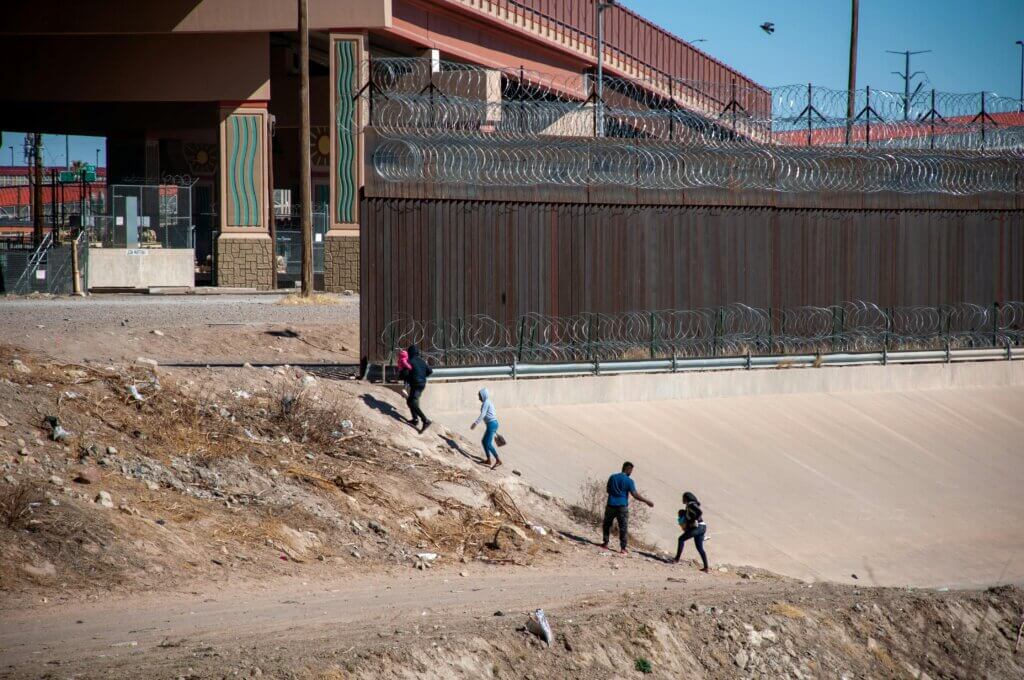7 reasons to fight for DREAMers on DACA’s 10th anniversary
Ten years ago today, President Obama created DACA, the Deferred Action for Childhood Arrivals program. At a time when immigrants were plagued with increasing insecurity, this program was intended to be a stopgap measure to protect many undocumented youths.
Evidently, the policy has many successes worth celebrating: More than 800,000 recipients—known as DREAMers—have benefited from DACA and its provisions. These include protection from deportation, work authorization, and improved access to education opportunities—all of which have allowed many of them to build a fulfilling and dignified life here in the U.S.
Despite being a critical policy in the immigration landscape, DACA has historically been a precarious program and remains under threat. This is why today thousands of people across the country are rallying, both to commemorate DACA and its impact and continue to demand more for our communities. In honor of DACA’s 10th anniversary, we are sharing reasons why we need to continue to fight for this program and its recipients.
Keep up with the latest from UnidosUS
Sign up for the weekly UnidosUS Action Network newsletter delivered every Thursday.
-
- DREAMers have proudly called the U.S. their home for many years.
Roughly 76% of DREAMers entered the U.S. in 2011 or earlier. Despite many coming to this country at a young age (on average at age 7) the average age of DACA recipients today is now 28 years old. These individuals have laid deep roots—families, careers, and more—and are actively contributing to our nation’s social fabric. - The U.S. economy, especially front-line and essential industries, relies on the work ethic and commitment of DREAMers and other undocumented youth.
According to recent reporting, 85% of DACA recipients are participating in the labor force. Throughout the ongoing COVID-19 pandemic, despite many being unfairly excluded from aspects of pandemic relief packages, more than 202,500 DREAMers stepped up to the frontline and served as essential workers to provide fellow Americans with important goods and services, including medical care, educational instruction, food, and more.These contributions have also helped undocumented youth advance economically, with DACA recipients experiencing more than a five-fold increase in income in the last 10 years. We see these gains in our national economy too, as data shows that DACA-eligible immigrants paid $2.2 billion in federal taxes and $1.8 billion in state and local taxes in 2017. - DACA has granted marginalized youth access to opportunities that help them realize their full potential.
DACA has been shown to improve education attainment of immigrant youth. Approximately 99% of DACA recipients have graduated from high school, while nearly half (47%) have also achieved some level of college education. In addition to protection from deportation affording students the reassurance to apply to college in the first place, the work permits available through the program open doors to higher-paying jobs so that they can better finance their educational pursuits. - DACA was designed to offer short-term protection to undocumented youth, but these communities deserve a permanent solution, such as an earned pathway to citizenship.
When President Obama implemented DACA in 2012 via executive action, the program was considered by many advocates to be a band-aid solution while allies in Congress fought to codify these protections via legislation, namely, the DREAM (Development, Relief, and Education for Alien Minors) Act. Despite being originally introduced over 20 years ago, opponents in Congress have repeatedly thwarted these attempts to make these relief measures permanent.The purpose of the DREAM Act is to grant DACA recipients’ permanent legal status and offer an eventual earned pathway to citizenship. However, due to inaction by Congress, the chances of this are slim and, in the meantime, DACA remains as vulnerable as ever. - In recent years, state and federal courts have aggressively restricted DACA, with the possible termination of the program looming.
In July 2021, a conservative judge in a Texas district court ruled the federal government to stop granting DACA to new applicants. Although this decision allows current recipients to retain and renew their DACA status, this program hurts tens of thousands of undocumented youths who, due to personal and administrative barriers, were unable to apply sooner. The ruling also halted the processing of many applications that USCIS had received in 2020 and 2021, thereby locking out nearly 80,000 first-time applicants whose applications were pending largely due to USCIS’s backlog and slow processing.The Texas decision is currently on appeal in the Fifth Circuit and considering the chances that DACA is further restricted or terminated, Congress and the Biden administration have all the more reason to act quickly to provide necessary relief to undocumented youth, whether DACA recipient or not. The Biden administration has taken a proactive step since then: In September 2021, DHS (Department of Homeland Security) released a proposed rule to preserve and fortify DACA and is reviewing feedback from advocates and communities prior to issuing a final order. - Contrary to the views of some conservatives, progressive immigration reform has not and will not trigger increased crime and migrant surges.
Since the start of DACA, some conservatives have spent the last 10 years disseminating false information to the public on who DREAMers are and how they will impact our country. Namely, these fear-mongering narratives accuse undocumented youth of provoking violent crime, exploiting public resources, and inciting uncontrollable migration to the southern U.S. border. Substantial research exists disproving these claims, with even some right-of-center organizations like the Cato Institute sharing that DREAMers have lower incarceration rates than native-born Americans of the same age and education level. Studies from the same organization further established that the creation of DACA in 2012 did not cause the unaccompanied child migrant crisis at the border and that, in fact, the surge began before the announcement of DACA. - Enthusiastic organizing won DACA, and persistent efforts will win us lasting protections.
Advocates across the immigrant rights movement have marched, rallied, and advocated for years in hopes that undocumented youth would have necessary protections and be able to live their lives as any other American child would. By sharing personal experiences, correcting misinformation, and speaking directly to those in power, we obtained a major win with the creation of DACA in 2012. Immigrant youth deserve so much more than temporary relief and we will continue to fight for permanent protections for them.
- DREAMers have proudly called the U.S. their home for many years.




